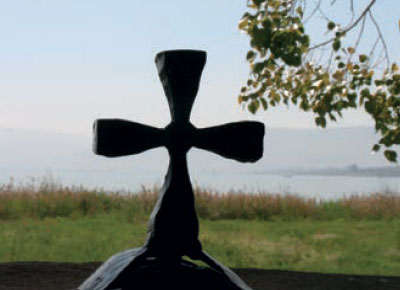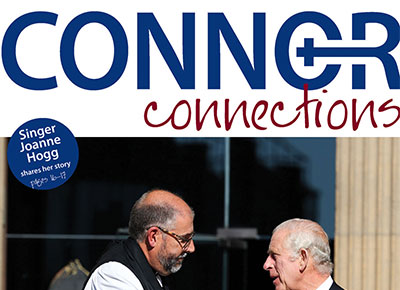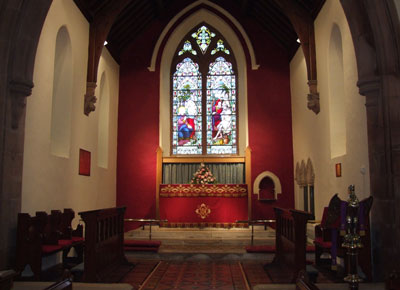Bishop Alan reflects on conference to date
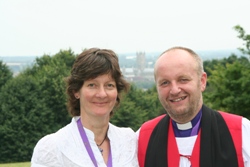 The days leading up to the Lambeth Conference were as ever busy for the always-on-the-go Bishop Alan Abernethy. He was working up until the day before Lambeth got underway.
The days leading up to the Lambeth Conference were as ever busy for the always-on-the-go Bishop Alan Abernethy. He was working up until the day before Lambeth got underway.
Speaking as he sipped a latte in his favourite Canterbury coffee shop, mid way through the conference, he admitted he had been tired and the three day retreat at the beginning had been very helpful.
“I was very tired and it took a while to get into it. The retreat was a good focus to the start of a conference like this and was very helpful to the Bishops for whom it was their first time.”
He spoke highly of the Indaba method of discussion. “The Indaba groups help to build up trust so people feel they can speak freely.”
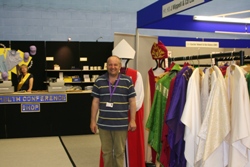 Bishop Alan described the service in Canterbury Cathedral on the first Sunday of the month as a ‘most amazing’ experience. “Six hundred and fifty Bishops in procession up the steps past the high alter gave me an amazing sense of history. The stones are almost holy. People have prayed there for so long, and so many people have done this before. I felt it very humbling. It is important to feel that sense of past before you start talking about the future,” he said.
Bishop Alan described the service in Canterbury Cathedral on the first Sunday of the month as a ‘most amazing’ experience. “Six hundred and fifty Bishops in procession up the steps past the high alter gave me an amazing sense of history. The stones are almost holy. People have prayed there for so long, and so many people have done this before. I felt it very humbling. It is important to feel that sense of past before you start talking about the future,” he said.
The Bishop was nominated as a Listener by his Indaba group, one of only 16 in the entire conference. “We are there to make sure that every Bishop has a voice in the larger groups,” he said. “It is an amazing privilege because we get to formulate what eventually becomes the initial report of the conference.”
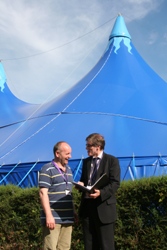 One of the things that has most struck Bishop Alan about the conference is the cultural mix. “It is fascinating meeting people from all over the world and seeing the huge cultural differences,” he said. “Everyone brings their theological background but also their cultural awareness. Where does culture impinge on theology and where does theology shape culture?”
One of the things that has most struck Bishop Alan about the conference is the cultural mix. “It is fascinating meeting people from all over the world and seeing the huge cultural differences,” he said. “Everyone brings their theological background but also their cultural awareness. Where does culture impinge on theology and where does theology shape culture?”
Another lasting impression is the sheer size and complexity of the conference. Translators are provided for some of the groups, and headphones translate debates into various languages in the Big Top.
“I wasn’t sure what I expected, but I felt a mix of dread coming here because I am not into big conferences and here I am with 650 Bishops. I am profoundly challenged by it. It is an intriguing process and I am not sure if it is going to make it,” Bishop Alan said.
“There is a mix of those who think it is hopeless, those who are uplifted and those who want their own way.
“But the Church is paramount here. I sense a great amount of pain. People feel excluded and feel that others don’t understand them.”
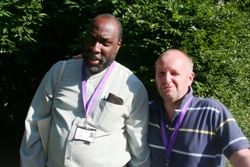 The Bishop went on: “I was asked as an Irishman how we sorted out our mess. I said the only lesson is that nobody wins and nobody loses. Can you find a way that allows the Gospel to win?”
The Bishop went on: “I was asked as an Irishman how we sorted out our mess. I said the only lesson is that nobody wins and nobody loses. Can you find a way that allows the Gospel to win?”
Bishop Alan said the controversy over sexuality would indirectly affect parishioners going about their normal business in Connor. “There has to be a better way of handling issues like this. Often in the Church we cannot find a way of learning to disagree.
“How do we handle serious difference without demonizing each other. That is a very good lesson for the church in the 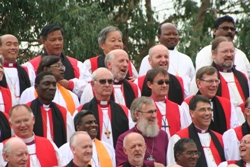 world, and so it does matter to people in Connor.”
world, and so it does matter to people in Connor.”
Bishop Alan speaks in depth to Church of Ireland press officer Paul Harron here.
© Copyright The Church of Ireland Diocese of Connor 2026 | Web Design by LD2.digital
